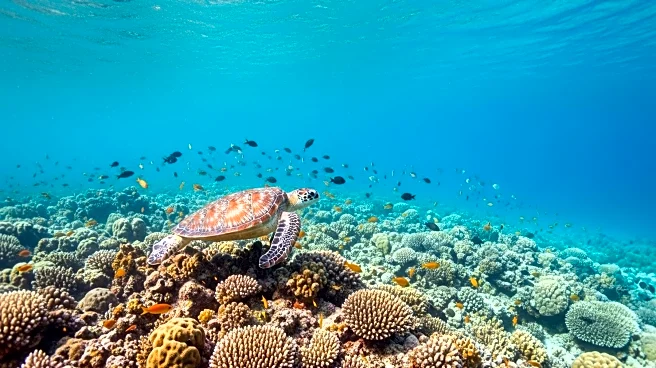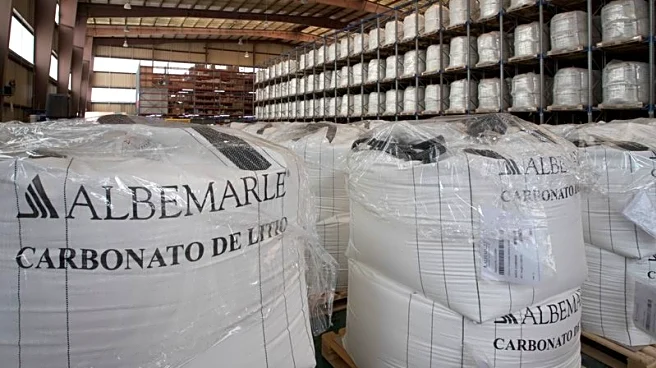What's Happening?
A recent study conducted by the University of Exeter, in collaboration with the Isles of Scilly Inshore Fisheries and Conservation Authority and Natural England, has revealed that the marine ecosystem around the Isles of Scilly is thriving despite widespread degradation in other UK waters. Using baited underwater cameras, researchers documented vibrant marine life, including sharks, lobsters, octopuses, and bluefin tuna. The study highlights the Isles of Scilly as the UK's most 'near-natural' marine ecosystem, largely due to protection from destructive practices like bottom trawling and low human impact. The findings suggest that these waters have maintained their condition rather than recovering from severe damage, providing a crucial reference point for restoring degraded areas elsewhere.
Why It's Important?
The study's findings are significant as they offer a model for marine conservation efforts across the UK. The Isles of Scilly's ecosystem serves as a benchmark for what a healthy marine environment should look like, which is vital for informing conservation strategies. The use of relatively low-cost camera systems for monitoring could enhance the effectiveness of Marine Protected Areas (MPAs) by providing evidence of biodiversity and species abundance over time. This approach could be scalable and non-destructive, offering a sustainable method for regular biodiversity assessments. The research underscores the importance of effective protection and monitoring in maintaining marine biodiversity, which is crucial for ecological balance and the fishing industry.
What's Next?
The study suggests that the camera systems used could be implemented more widely to monitor other MPAs, potentially leading to improved conservation measures. As the research provides a reference for healthy marine ecosystems, it could influence policy decisions and conservation strategies aimed at restoring degraded marine areas. The findings may prompt further studies to explore similar ecosystems and develop scalable monitoring solutions. Stakeholders, including environmental agencies and policymakers, might consider these insights to enhance marine conservation efforts across the UK.











